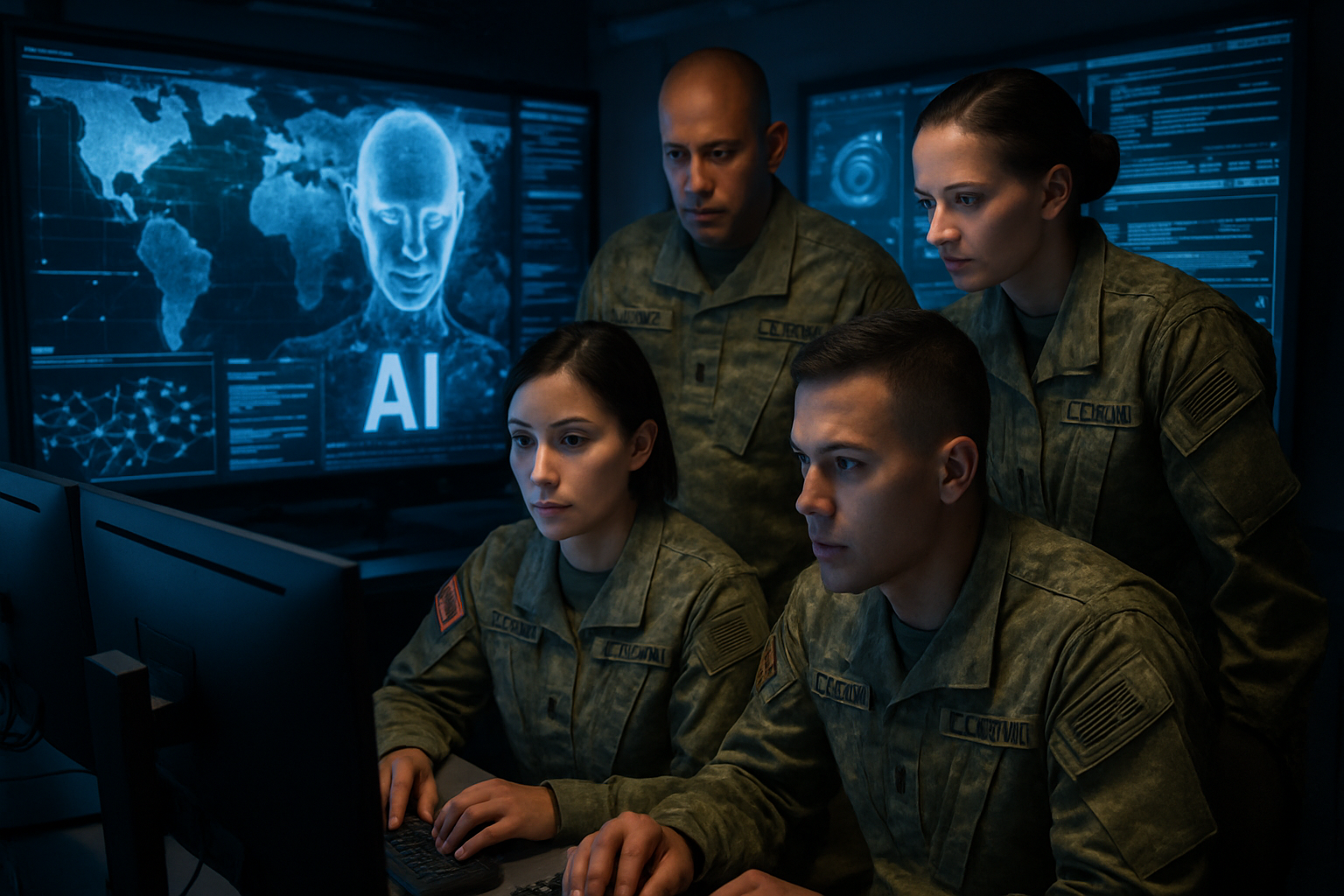Quick Take
- Army launches first AI-focused career field (49B) since 2023 talent acquisition roles
- New warrant officer track embeds AI specialists across operational units
- Initiative addresses critical tech gaps against near-peer military competitors
- Secretary Driscoll partners with Silicon Valley firms for R&D pipeline access
- Move signals sustained demand for military AI training and equipment systems
The US Army has rolled out dedicated artificial intelligence career paths, marking a major step in its push to modernize through technology-driven battlefield strategies. The new Military Occupational Specialty 49B centers specifically on artificial intelligence and machine learning, representing the service’s first AI-centered occupational specialty since 2023, when talent acquisition specialists were introduced.
This strategic shift aims to prepare the Army for future battlefields where algorithms and autonomous systems will play decisive roles. Beyond the 49B specialty, a new warrant officer track embeds AI specialists directly within operational units, integrating human intelligence with machine learning capabilities across formations.
The initiative builds on prior groundwork from 2018, when the Army established the AI Task Force, which later evolved into the Army Artificial Intelligence Integration Center. This center is charged with closing technology gaps against near-peer competitors, particularly in autonomous warfare capabilities.
Army Secretary Dan Driscoll is accelerating these efforts by partnering with Silicon Valley firms and commissioning tech executives as senior Army Reserve officers, aiming to access and shape research and development pipelines early. Driscoll noted during Senate confirmation hearings, “We’ve had significant interest from innovators across the spectrum. The critical question is penetrating their research and development pipelines early, shaping technologies before market deployment.”
The expansion of AI-focused military career fields signals substantial opportunities for defense technology companies. The Army’s commitment to building a uniformed AI talent base is expected to generate sustained demand for training systems, software platforms, and specialized equipment. Defense contractors aligning their development cycles with military requirements may capture significant market share in emerging battlefield technologies.
Internal Army documents emphasize that these roles will provide “needed agility by integrating processes through dedicated artificial intelligence and machine learning operations for evolving mission objectives.” However, while career paths are formalizing, frontline units are still in the early stages of adopting AI technologies. Service-wide doctrine for AI integration remains under development, presenting implementation gaps between strategic policies and operational practice.
The Army relies heavily on private sector partnerships due to a shortfall in internal technical expertise, highlighting risks and opportunities for companies able to bridge the gap with practical, field-ready solutions.
The move comes amid intensifying global competition in autonomous warfare, particularly from China and other nations investing heavily in these capabilities. Establishing career paths for AI specialists underlines the Army’s recognition that human capital development must complement hardware acquisition.
For business leaders in AI and defense sectors, this transformation signals predictable, long-term demand for specialized training, equipment, and ongoing technical support. Embedded AI specialists across formations imply a requirement for distributed, resilient AI systems rather than centralized architectures, influencing product development strategies.
As the 49B specialty and warrant officer track mature, they are expected to drive increasingly sophisticated AI system requirements, creating sustained market opportunities. Meeting military-specific operational, security, and integration demands will be essential for success.
According to the Army, the systematic approach to AI career development will accelerate this transformation and expand opportunities for technology companies able to navigate complex military procurement processes while addressing unique defense needs.






